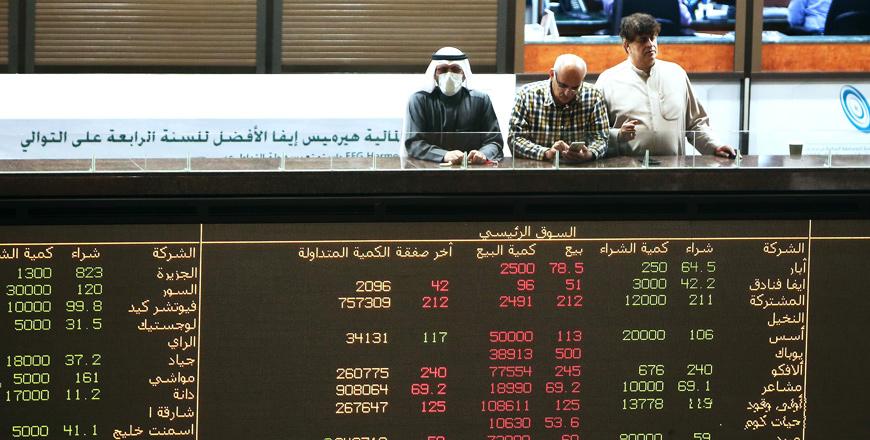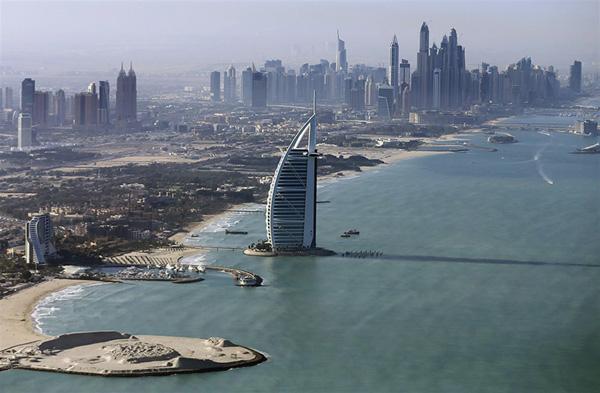You are here
Gulf countries’ bourses dive
By AFP - Mar 01,2020 - Last updated at Mar 01,2020

Kuwaiti traders follow the market at the Boursa Kuwait stock exchange in Kuwait City on Sunday (AFP photo)
DUBAI — Stock markets in the oil-rich Gulf countries plunged on Sunday.
The drop comes amid prevailing uncertainty which threatens to undercut Gulf economies. Gulf countries have already been battling a downturn and struggling to wean themselves from their decades-old addiction to energy revenues.
The Saudi bourse, the region's largest and one of the world's top 10 equity markets, closed down 3.7 per cent to its lowest level in 18 months.
Energy giant Saudi Aramco, the world's biggest listed firm, dropped 2.1 per cent to 32.65 riyals ($8.70), its worst performance since its listing on December 11 in a record-breaking initial public offering .
The other five markets operating on Sunday in the region, which were closed the previous two days for the weekend, were also hit badly as oil prices sagged below $50 a barrel.
The region's slide was led by the Kuwait Bourse, where the All-Share Index fell 10 per cent, triggering its automatic closure. Kuwait's bourse was closed for most of last week for national holidays.
The Dubai Financial Market dipped 4.5 per cent, while its sister market in Abu Dhabi was down 3.6 per cent at the close of trading, both one-year lows.
Bahrain's bourse ended 3.4 per cent down and the Muscat Securities Market in Oman finished down 1.2 per cent.
"GCC [Gulf Cooperation Council] equities witnessed a downfall as panic over coronavirus spread across the region," M.R. Raghu, head of research at Kuwait Financial Centre (Markaz), told AFP.
Global stocks slumped on Friday, marking the largest weekly drop since the 2008 global financial crisis.
Oil
Crude oil prices tumbled as well and analysts said central banks, led by the US Federal Reserve, might have to shift into crisis-resolution mode with urgent interest rate cuts.
"The news flow today is quite negative and it will make the narrative between now and Monday morning even more important than it was on Friday," Matt Maley, an equity strategist at Miller Tabak & Co., told Bloomberg News.
But thanks to reforms following the global financial crisis, the markets are proving "resilient", the Bank of International Settlements' chief economist Claudio Borio said on Sunday.
Related Articles
KUWAIT CITY — Share prices in the energy-rich Gulf states tumbled to multi-year lows on Sunday after oil prices closed the week below $38 a
Kuwait City — The earnings of Gulf-listed firms dropped 8 per cent in the first half of 2016 due to low oil prices and a lack of liquidity,
KUWAIT CITY — Stock markets in the energy-rich Gulf states ended 2015 in negative territory on Thursday, following a massive decline in oil

















